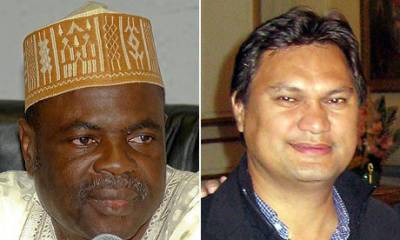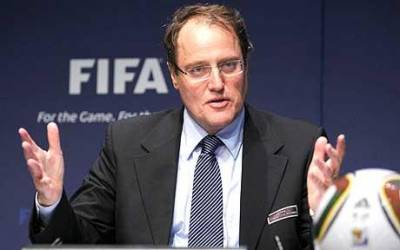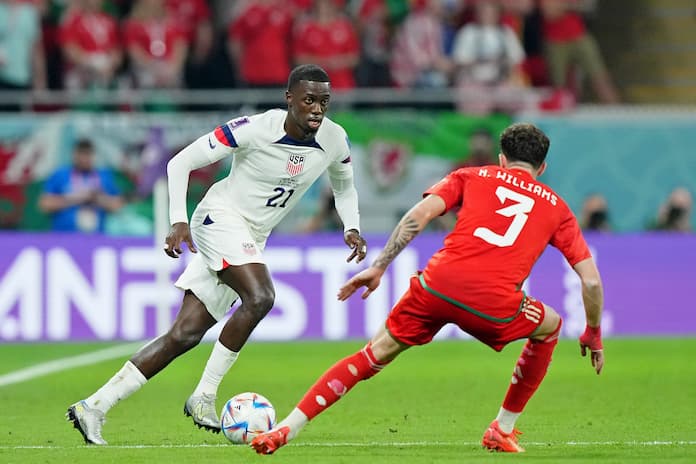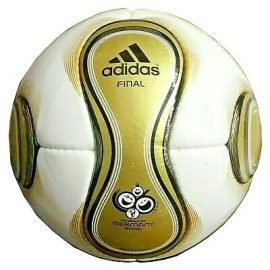FIFA’s paradoxically named Ethics committee have admitted that football’s governing body have suffered ‘very great damage’ as a result of the corruption scandal that has engulfed the entire organisation after the Sunday Times went public with the results of their covert investigation into collusion between the bidders for the 2018 and 2022 World Cups.
The pair of nefarious scheisters that the newspaper managed to root out with fiscal promises (Nigeria’s Amos Adamu and Oceania’s Reynald Temarii) were provisionally suspended by FIFA last month, however, both have now been resolutely banned for their attempts to secure cash for ‘personal projects’ in return for their World Cup votes.
Adamu received a three-year ban whilst fellow executive committee member Temarii has been ostracized for the next twelve months.
As a result of the Ethics committee’s internal investigations that were forcibly instigated by the Sunday Times‘ revelations, FIFA have also confirmed that ban sanctions have been handed to Botswana’s Ismael Bhamjee (four years), Amadou Diakite of Mali and Ahongalu Fusimalohi of Tonga (both three years) and the Tunisian chairman of FIFA’s dispute resolution committee, Slim Aloulou, who was given a two-year suspension.
It later came to light that four of the banned officials were specifically found to have breached FIFA rules relating to bribery and collusion. All six were also fined somewhere in the region of £3,200 – £6,400.

Since receiving his ban, Oceanian representative Temarii has openly accused the Sunday Times of failing to publish material in which he made it clear he was not interested in selling in his World Cup votes in return for money to fund the development of a new football academy in Australia.
Temarii also told the gathered press that, upon his return, he intends to push FIFA into consider the prevention of executive committee members who are directly representing a country’s bid from voting:
“I obviously respect the ethics committee’s decision even if I do not entirely share it’s view. I intend to come back to FIFA and be one of the drivers that will allow them to correct it’s structures. We need to considerably improve the internal organisation.
Is it ethical or desirable that members of the executive committee belonging to federations that are candidates for the World Cup can take part in these votes? That’s one of the questions that needs to be asked internally.”
Perhaps inevitably, the Oceanian representative went on to plead his innocence:
“During the interview (with the undercover journalists) I must have said 15 times that in no way was I interested in voting for the United States. I clearly said: ‘Keep your money’.”
How very noble.

When asked about having to unearth and punish corruption within his own organisation, Ethics committee chairman, Claudio Sulser, immediately resumed a familiarly defensive stance.
Despite catching Adamu and Temarii in the act of agreeing to accept money from journalists (posing as lobbyists acting on behalf of the US World Cup bid), Sulser claims that the ‘sensationalist’ Sunday Times ‘twisted the facts’ when reporting their overtly incriminating results:
“What I cannot tolerate is the fact that they changed the sentences, they changed the way they presented the truth. If footage is taken out of context that’s twisting the facts. They showed footage that lasted four minutes. We have looked at audio and video footage of several hours.”
The flagrant arrogance is astounding although, sadly, nothing particularly new where FIFA is concerned.
Whereas you could probably argue that there has to be certain amount of editorial agenda behind the decision to cut down three full hours of footage into an easily-digestible, four-minute clip on the newspaper’s website, you can hardly accuse the Sunday Times of bending the truth by posting ‘actual’ footage of an ‘actual’ breach of law taking place.
Sulser’s moralising on journalistic ethics ring a little hollow considering that he had, hours before, effectively handed out multiple bans to FIFA members (totalling 16 years) on the evidence of an inquiry into a single newspaper investigation.
Hardly a glowing absolution of the moral groundings on which FIFA’s Ethics committee is based, now is it?
Add Sportslens to your Google News Feed!






